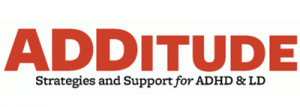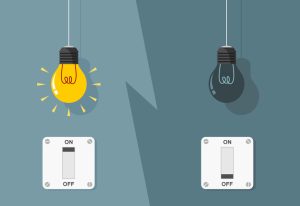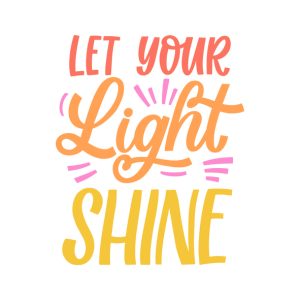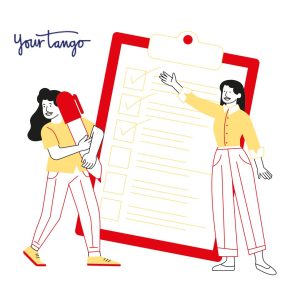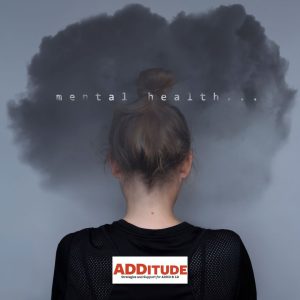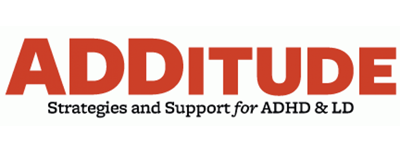 Do you dismiss a compliment or attribute success at your work to luck instead of your intelligence, creativity, or effort? Unfortunately, many adults (and kids) with ADHD have trouble accepting positive feedback about themselves. Years of hearing about their deficiencies or experiencing challenges related to having a neurodivergent brain lead many folks with ADHD to walk around with a persistent feeling that they are just not good enough. Perhaps you feel like an imposter. You wonder if you genuinely deserve validation or acknowledgment when good things happen. If these statements are factual, you probably struggle with imposter syndrome.
Do you dismiss a compliment or attribute success at your work to luck instead of your intelligence, creativity, or effort? Unfortunately, many adults (and kids) with ADHD have trouble accepting positive feedback about themselves. Years of hearing about their deficiencies or experiencing challenges related to having a neurodivergent brain lead many folks with ADHD to walk around with a persistent feeling that they are just not good enough. Perhaps you feel like an imposter. You wonder if you genuinely deserve validation or acknowledgment when good things happen. If these statements are factual, you probably struggle with imposter syndrome.
What Is Imposter Syndrome?
Imposter syndrome reflects feeling like a fraud or a phony. It comes from a sense of insecurity in your awareness or hovering just below the surface. Imposter syndrome doesn’t occur overnight. Instead, it takes years of receiving criticism and experiencing judgments for somebody to develop a core sense of deficiency. Based on evaluations, exclusion, or hostility from others as you mature, this deficiency lies at the heart of imposter syndrome. People with ADHD and without can suffer from it. This insecurity fosters pervasive self-doubt that you don’t deserve any accolades that you receive. Instead, you deem other people more worthy because of their accomplishments, confidence, or appearance. Imposter  syndrome is directly related to perfectionism. Since you are not perfect and can never achieve perfection, then you are fundamentally flawed. Sadly, no success seems to lessen this wound for so many folks. Many neurodivergent teens and adults who have frequently been judged unfavorably against neurotypical standards have internalized these opinions. Despite all efforts to the contrary and any admirable achievements, you may still believe they are true. Imposter syndrome is the domain of your inner critic. It’s the voice spews negativity about simply being an outside-the-box thinker, an imperfectly perfect human like the rest of us. But this voice adds a toxic layer of insecurity: you walk around anxious that someone will discover the incompetent, foolish person you think you
syndrome is directly related to perfectionism. Since you are not perfect and can never achieve perfection, then you are fundamentally flawed. Sadly, no success seems to lessen this wound for so many folks. Many neurodivergent teens and adults who have frequently been judged unfavorably against neurotypical standards have internalized these opinions. Despite all efforts to the contrary and any admirable achievements, you may still believe they are true. Imposter syndrome is the domain of your inner critic. It’s the voice spews negativity about simply being an outside-the-box thinker, an imperfectly perfect human like the rest of us. But this voice adds a toxic layer of insecurity: you walk around anxious that someone will discover the incompetent, foolish person you think you 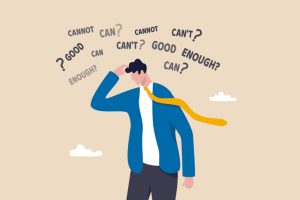 indeed are. You can’t assimilate the accolades your receive, no matter how much you deserve them. In addition, many people with imposter syndrome also live with a low (or overt) level of depression. There’s a mix of persistent anxiety about discovering your dark secret and hopelessness that you can never entirely change for the better. Even though its origins can make sense, given your personal history, it’s still a brutal way to treat yourself.
indeed are. You can’t assimilate the accolades your receive, no matter how much you deserve them. In addition, many people with imposter syndrome also live with a low (or overt) level of depression. There’s a mix of persistent anxiety about discovering your dark secret and hopelessness that you can never entirely change for the better. Even though its origins can make sense, given your personal history, it’s still a brutal way to treat yourself.
Manifest A Growth Mindset
I want to offer you a different approach that allows you to value and absorb affirming things about yourself. You do not have to live with imposter syndrome. Yes, lowering the volume of these harsh thoughts and deeply ingrained false beliefs can be very challenging. You may be so accustomed to second-guessing yourself that it seems counterintuitive to act differently. But what if you allowed yourself to make mistakes and be successful simultaneously? Sometimes you hit a home run, and sometimes, you swing and miss. The average baseball player strikes out at the plate two out of three times. Trying, struggling, regrouping, and trying again doesn’t mean that you’ve failed or other people are better than you are. It’s what living is all about: manifesting a growth mindset. Imposter syndrome intensifies your vulnerabilities while denying you the satisfaction derived from effort and engagement. You have strengths and challenges like everybody else. The problem is the struggle to hold onto your successes long enough to believe in your abilities and nurture a sense of inner pride. Instead, the imposter monster quickly grabs them and tosses them away.
Acknowledge Your Wins
 When you acknowledge your wins, regardless of size or importance, you are laying Kryptonite at the feet of the imposter beast. When you pay equal if not more attention to things that go well, something that you enjoy, and things that you are good at, you weaken this pattern even more. It’s about shifting your perspective from what’s wrong and not enough about you to celebrate what is positive and good enough. Accept it if someone pays you a compliment–don’t deflect it. Say “thank you.” Please take it in and hold it like the precious gift that it is. If you tell a colleague that you want to improve your timeliness and you show up to a meeting on time, receive their high-five of support with a grin. When your partner appreciates that you went grocery shopping and put away all the food, refrain from minimizing and accepting their acknowledgment.
When you acknowledge your wins, regardless of size or importance, you are laying Kryptonite at the feet of the imposter beast. When you pay equal if not more attention to things that go well, something that you enjoy, and things that you are good at, you weaken this pattern even more. It’s about shifting your perspective from what’s wrong and not enough about you to celebrate what is positive and good enough. Accept it if someone pays you a compliment–don’t deflect it. Say “thank you.” Please take it in and hold it like the precious gift that it is. If you tell a colleague that you want to improve your timeliness and you show up to a meeting on time, receive their high-five of support with a grin. When your partner appreciates that you went grocery shopping and put away all the food, refrain from minimizing and accepting their acknowledgment.
Build Self-Confidence & Self-Worth
Start to counter the inner critic’s voice by strengthening your inner ally. This coach is the one who encourages you, who reminds you of your value as a person, and who sees the good in things you do. Strengthen this ally by paying attention to what is working. At the end of each day, with your partner at dinner, via text with a friend, or in your journal, acknowledge three things that went well. These can be as simple as “I made a great cup of coffee this morning” to “My boss told me that she loved my presentation.” Fill up the well inside of you with these statements instead of the self-critical, judgmental ones. You’ll be building self-confidence and self-worth instead of fueling anxiety.
You’re Important and Valuable
 Lastly, I cannot emphasize the importance of validating traits about yourself that are separate from what you do–traits about who you are: warm, funny, intelligent, spontaneous, generous, and kind. People with ADHD struggle to perform effectively in areas related to executive functioning deficits like emotional regulation, organization, time management, and focus. But you also excel at activities and interests you love. Both are true simultaneously. There’s a lot right with you so take the time to notice, honor and hold onto those things today. This is how you will reduce imposter syndrome.
Lastly, I cannot emphasize the importance of validating traits about yourself that are separate from what you do–traits about who you are: warm, funny, intelligent, spontaneous, generous, and kind. People with ADHD struggle to perform effectively in areas related to executive functioning deficits like emotional regulation, organization, time management, and focus. But you also excel at activities and interests you love. Both are true simultaneously. There’s a lot right with you so take the time to notice, honor and hold onto those things today. This is how you will reduce imposter syndrome.
Want to ask Dr. Saline a question? Click Here
Become A Member
Please become a member of my newsletter community. You can find support and resources and connect with a group that understands your questions and needs. Click here Follow me on social media: YouTube, Facebook, Twitter, and Instagram. Invite Me to Speak | Join A Group | Newsletter | Read my blog 
Sign-up for my newsletter today and receive 10% off!




 Students with ADHD want to do well in school, and most of them put a lot of effort into their work. But at the same time, they must contend with issues around focus, organization, distractibility, impulse control and time management, and their academic workload. So let’s take a step back and see how you can prepare your response to a disappointing report card and a disappointed child.
Students with ADHD want to do well in school, and most of them put a lot of effort into their work. But at the same time, they must contend with issues around focus, organization, distractibility, impulse control and time management, and their academic workload. So let’s take a step back and see how you can prepare your response to a disappointing report card and a disappointed child. 


 indeed are. You can’t assimilate the accolades your receive, no matter how much you deserve them.
indeed are. You can’t assimilate the accolades your receive, no matter how much you deserve them. 



